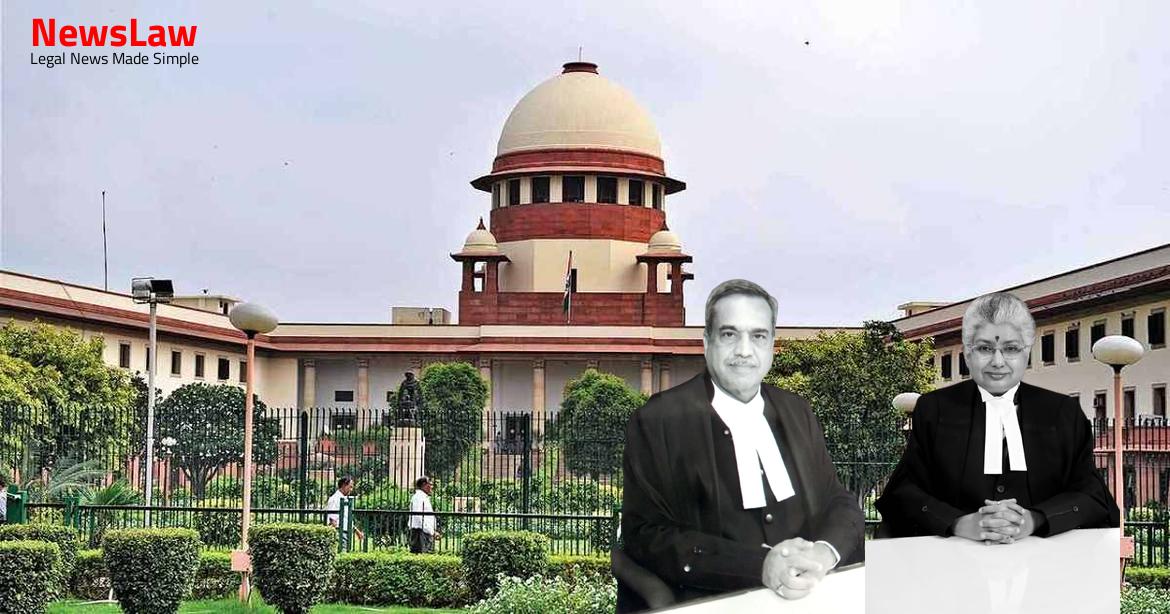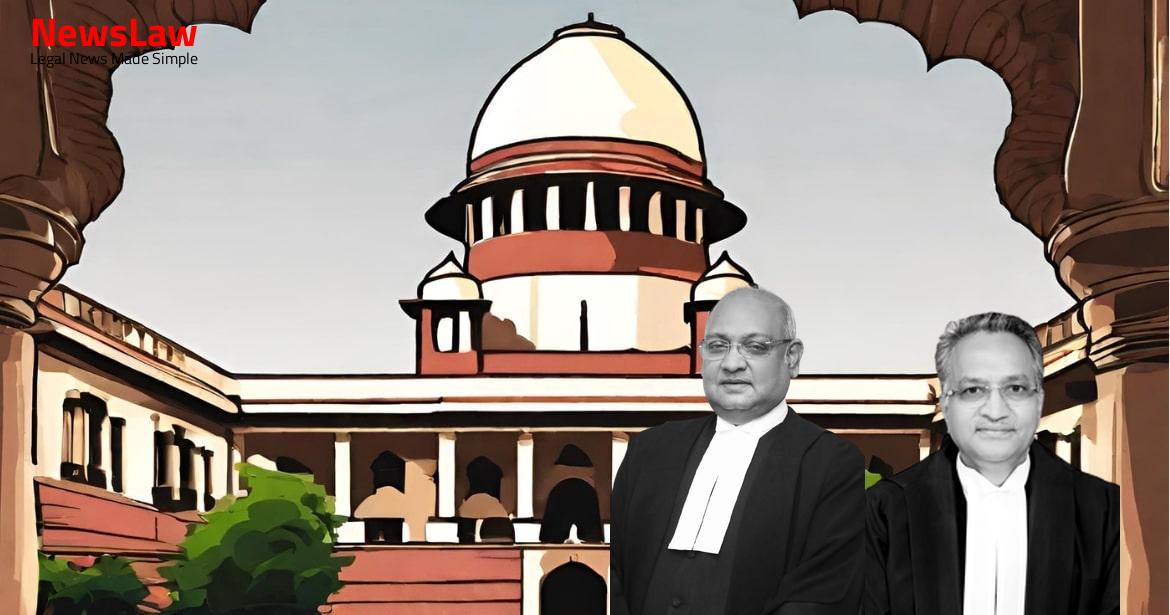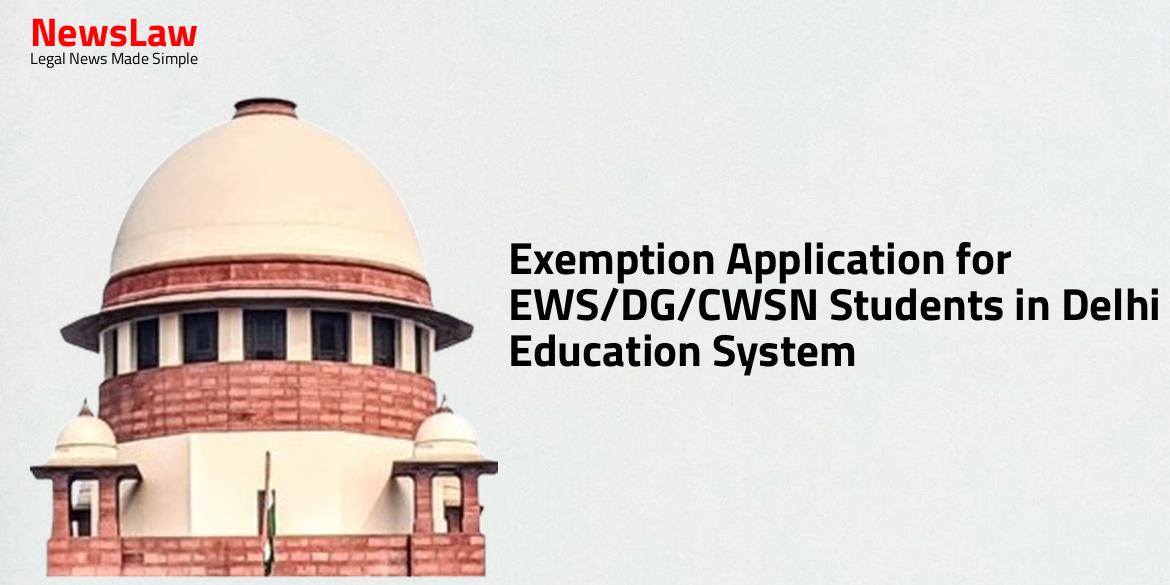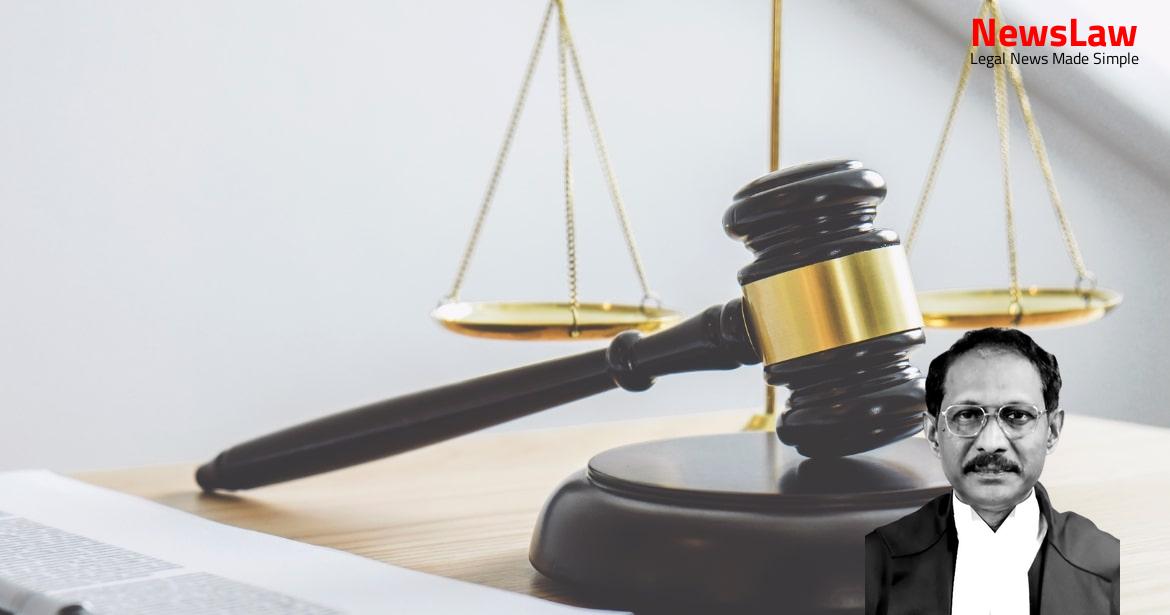Delve into the detailed legal analysis of recent court decisions regarding land acquisition proceedings. Explore the complexities of the law, from notifications to compensation, in this thorough examination of the legal landscape surrounding land acquisitions.
Facts
- Various writ petitions were filed challenging the acquisition of lands by the APMC in the case.
- The tribunal orders and High Court writ petitions were revisited multiple times regarding the land acquisitions.
- Notifications and orders under the Land Acquisition Act were issued for different parcels of land owned by respondent No.4 Trust.
- Challenges were made regarding notifications, compensation, and possession of the acquired lands.
- Several appeals and petitions were clubbed together as they involved common parties and legal issues.
- Compensation was deposited by APMC based on instructions from the Land Acquisition Officer.
- The process of acquisition, fencing, possession, and development of the acquired lands was detailed in the records.
- APMC filed IA No.03/2008 seeking permission to build a wall around 65 acres of land which was allowed
- Division Bench of the High Court dismissed the appeals confirming the judgement of the learned Single Judge
- The learned Single Judge quashed and set aside the Tribunal’s order dated 28.11.2017
- Tribunal passed a fresh order declaring 265 acres 24 guntas of land held by respondent No.4 as excess land
- High Court set aside the Tribunal’s order dated 22.09.2015 and remitted the matter back to the Tribunal
- APMC filed writ appeals before the High Court against the judgement of the learned Single Judge dated 24.06.2014
- Division Bench of the High Court stayed the order of the learned Single Judge
Also Read: Ruling on Circumstantial Evidence in Murder Case
Issue
- Whether the possession of a portion of the lands in question given to APMC is valid and in accordance with the law.
- Whether the invocation of Section 17 of the LA Act in the acquisition of a portion of the lands for the same purpose was justified.
Also Read: Challenging Legal Presumptions in Negotiable Instrument Cases
Arguments
- Shri V. Giri, learned Senior Advocate representing the APMC, argues that the acquisitions for the lands in question did not lapse under Section 24(2) of the Act, 2013, as the compensation amount was deposited and withdrawn by the original landowner.
- It is contended that no award was declared for the 172 acres of land due to stay orders from the High Court.
- Shri Singh, representing the respondent Trust, concedes that the acquisitions are not deemed to have lapsed under Section 24(2) of the Act, 2013, as per the decision in the Indore Development Authority case.
- The appeal against the judgment of the learned Single Judge is pending, and it is requested that if remanded, the appeal be heard first by the Division Bench.
- The High Court did not quash the notifications under Section 4 and 6 of the Act, 1894, for the 172 acres and 100 acres of land.
- The period during which stay orders were in place must be excluded for the application of Section 24(1)(a) of the Act, 2013.
- It is argued that the possession of 65 acres of land taken under urgency clause was not illegal, and the failure to deposit 80% compensation was due to pending legal proceedings.
- Delays in declaring awards were due to stay orders, pending Land Reforms Tribunal proceedings, and uncertainty around excess vacant land ownership by the Trust.
- For the 100 acres of land at Herohalli Village, an award for 65 acres was declared, and possession was taken over. Shri V.N. Raghupathy, representing the State, supports the APMC.
- The respondent Trust was established in 1960 and is not an ordinary individual landowner.
- The lands in question were purchased in 1960 and are being used for Gandhian activities in furtherance of the Trust’s objectives.
- The Trust is actively involved in various activities and runs an ashram to fulfill its objectives.
- The learned Single Judge correctly interpreted the law prevailing at the relevant time and decided in accordance with it.
- The High Court did not set aside the notifications under the Act, 1894 but declared the acquisitions as lapsed under Section 24 of the Act, 2013.
Also Read: Legal Analysis Critique in High Court’s Quashing Order
Analysis
- The decision in Sree Balaji Nagar Residential Assn. v. State of T.N., (2015) 3 SCC 353 : (2015) 2 SCC (Civ) 298 is overruled.
- Other decisions following the same are also overruled.
- The aspect regarding the proviso to Section 24(2) and the interpretation of ‘or’ as ‘nor’ or ‘and’ was not considered in Indore Development Authority v. Shailendra, (2018) 3 SCC 412 : (2018) 2 SCC (Civ) 426.
- The decision in Pune Municipal Corpn. v. Harakchand Misirimal Solanki, (2014) 3 SCC 183 : (2014) 2 SCC (Civ) 274 is overruled.
- It is essential for courts to adjudicate on all issues and pronounce judgment on all issues, rather than taking a shortcut approach and deciding on only one issue. This prevents burdens on the appellate court and the need for remand if the decision on the single issue is found to be erroneous.
- The court did not decide on various issues raised in the writ petition No. 3884 of 1998, focusing primarily on the lapsing of acquisition proceedings under the 2013 Act. As a result of holding the decision on this issue as erroneous, the case is remanded for a fresh decision on all issues.
- The amendment to Order 14 Rule 2 from 1977 mandates the court to pronounce judgment on all issues, even if a case is disposed of on a preliminary issue, preventing the need for remand.
- When possession has been taken after passing the award under Section 16 of the 1894 Act, the land vests in the State, and there is no lapse under Section 24(2) of the 2013 Act.
- Non-deposit of compensation does not lead to a lapse in the land acquisition proceedings. The compensation under the 2013 Act must be paid to landowners as on the date of notification for land acquisition.
- The High Court ought to have considered and given findings on other issues raised instead of focusing solely on the lapsing of acquisition proceedings.
- The judgment declaring that the acquisitions have lapsed under sub-section (2) of Section 24 of the Act, 2013, is unsustainable based on the decision in the case of Indore Development Authority.
- The proviso to Section 24(2) details the consequence of non-deposit with respect to the majority of landholdings, entitling all landowners to compensation as per the 2013 Act.
- Section 24(2) does not give rise to a new cause of action to question the legality of concluded land acquisition proceedings, and it applies to proceedings pending on the date of the enforcement of the 2013 Act.
- Landowners cannot claim lapse under Section 24(2) if they had the benefit of interim orders that delayed the making of the award and payment/deposit of compensation.
- The High Court should have adjudicated on all the issues raised and not just one
- The Division Bench did not properly consider the matter and simply dismissed the appeals
- All the appeals have been allowed, and the common judgment of the High Court declaring the acquisition proceedings lapsed has been quashed
- The Court did not express any opinion on the merits of the other issues raised, leaving them to be dealt with by the learned Single Judge
Decision
- The matters are remitted back to the learned Single Judge to decide and dispose of the aforesaid writ petitions afresh and in accordance with law and on their own merits.
- The impugned common judgment and order passed by the Division Bench of the High Court as well as the common judgment and order passed by the High Court in writ petition(s) No. 3884/1998 and Nos. 37140-37146/2000 are hereby quashed and set aside.
- The aforesaid exercise shall be completed within a period of twelve months from the date of receipt of the present order.
- Writ Appeal No.1089 of 2021 to be heard first and to be decided and disposed of on or before 31.12.2022.
- All the appeals are allowed accordingly.
- On remand, the learned Single Judge to adjudicate and pronounce the judgment on all other issues except the issue with respect to the lapse of the acquisition proceedings by virtue of the Act, 2013.
- There shall be no order as to costs.
Case Title: THE AGRICULTURAL PRODUCE MARKETING COMMITTEE Vs. THE STATE OF KARNATAKA (2022 INSC 325)
Case Number: C.A. No.-001345-001346 / 2022



